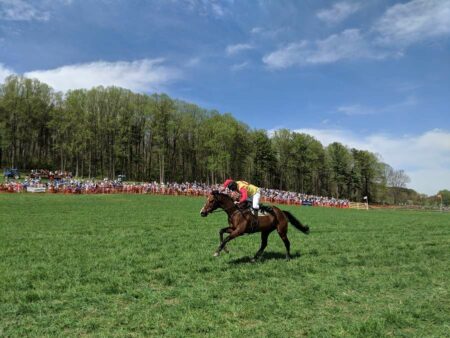The world of sports betting has always been shrouded in excitement and intrigue, with millions of dollars changing hands and fortunes being made or lost overnight. However, there is a darker side to this high-stakes industry, one that has been tainted by scandals involving underhanded dealings, cheating, and corruption.
In this article, we delve into the top 10 sports betting scandals in US history, exploring the shadowy connections between sportsbooks, casinos, and notorious personalities, all in a dramatic fashion that will leave you at the edge of your seat.
The Black Sox Scandal (1919)
The infamous Black Sox Scandal of 1919 rocked the world of baseball to its core. Eight members of the Chicago White Sox were accused of conspiring with gamblers to throw the World Series in exchange for a payoff. As the sordid details emerged, the public’s trust in America’s favorite pastime was shaken.
Key personalities in the scandal included the team’s star player, “Shoeless” Joe Jackson, and ace pitcher Eddie Cicotte. The mastermind behind the scheme was reputed mobster Arnold Rothstein, who, through his network of illegal sportsbooks and casinos, orchestrated the fix to reap massive profits.
The aftermath of the Black Sox Scandal was a turning point for the sports betting industry, leading to stricter regulations and oversight. Baseball’s first commissioner, Kenesaw Mountain Landis, was appointed to restore integrity to the game and handed lifetime bans to the implicated players, forever tarnishing their reputations.
The CCNY Point-Shaving Scandal (1950-1951)
In a sordid tale of greed and deception, the City College of New York (CCNY) point-shaving scandal shook the foundations of collegiate basketball betting. Between 1950 and 1951, seven players from the CCNY team conspired with gamblers to manipulate the outcomes of games, ensuring that the point spread favored the bettors.
The sportsbooks and casinos involved in the scandal were part of a vast illegal betting operation run by underworld figures like Salvatore Sollazzo, who profited handsomely from the fix. The players, lured by the promise of easy money, found themselves ensnared in a web of deceit, and betrayal.
When the scandal finally broke, the careers of the implicated players were ruined, and the once-mighty CCNY basketball program was left in shambles. The NCAA was forced to confront the issue of corruption in college sports, leading to a renewed emphasis on integrity and the imposition of harsh penalties for those found guilty of point-shaving.
The Pete Rose Betting Scandal (1989)
Pete Rose, one of the greatest baseball players of all time, found himself at the center of a scandal that would tarnish his legacy forever. In 1989, it was revealed that Rose had bet on MLB games while serving as the manager of the Cincinnati Reds, violating the cardinal rule of baseball: never gamble on the sport you love.
Rose’s dealings with sportsbooks and casinos during his playing and managerial career cast a dark shadow over his accomplishments. Despite his insistence that he never bet against his own team, the weight of the evidence against him was overwhelming.
In a stunning fall from grace, Pete Rose was banned for life from Major League Baseball, ending any hopes of being inducted into the Hall of Fame. The scandal served as a stark reminder that even the most revered figures in sports are not immune to the temptations of the betting world.
The Northwestern University Point-Shaving Scandal (1994-1995)
The Northwestern University point-shaving scandal exposed the vulnerability of college athletes to the nefarious influence of gamblers. Between 1994 and 1995, players from the university’s football and basketball teams colluded with sportsbook operators to manipulate game outcomes, ensuring lucrative payouts for the conspirators.
Key figures in the scandal included Wildcats football player Brian Ballarini and basketball player Kenneth Dion Lee, who were both enticed by the promise of easy cash. The sportsbook operators behind the scheme, acting on insider information, profited immensely from the players’ cooperation.
As the shocking details of the conspiracy came to light, the reputations of the implicated athletes were forever tarnished. Northwestern University’s athletic program faced intense scrutiny, and the NCAA was once again forced to confront the issue of corruption with ng college sports. The scandal ultimately led to criminal convictions for those involved and renewed efforts to prevent similar occurrences in the future.
The Tim Donaghy NBA Betting Scandal (2007)
In 2007, the National Basketball Association (NBA) was rocked by a betting scandal that would leave an indelible stain on the league’s reputation. Tim Donaghy, a veteran NBA referee, was found guilty of betting on games that he officiated and passing on inside information to sportsbook operators.
The sportsbook brands involved in the scandal were part of an extensive illegal betting network that capitalized on Donaghy’s privileged position within the NBA. The disgraced referee’s actions cast doubt on the integrity of the league and led many fans to question the fairness of the games they watched.
The fallout from the Tim Donaghy scandal was swift and severe. The NBA implemented sweeping reforms aimed at safeguarding the integrity of the game and strengthening its oversight of officials. Donaghy, once a respected figure within the league, was sentenced to prison for his role in the scandal and remains a symbol of the potential for corruption within professional sports.
The University of Toledo Betting Scandal
The University of Toledo betting scandal served as a chilling reminder of the susceptibility of college athletes to the allure of gambling. In mid 2000s, it was revealed that football and basketball players from the university had colluded with sportsbook operators to fix games, resulting in a scandal that would reverberate throughout the world of college sports.
At the heart of the conspiracy was Detroit-area gambler Ghazi “Gary” Manni, who enticed the players with cash and gifts in exchange for their cooperation. As the scheme unfolded, the sportsbook operators involved reaped significant profits, exploiting the athletes’ willingness to betray their teams and fans.
The repercussions of the scandal were severe. The implicated players faced criminal charges and were expelled from the university, their once-promising athletic careers in ruins. The University of Toledo was left grappling with damage to its reputation, and the NCAA was again forced to confront the issue of corruption within college sports. In the aftermath, a renewed emphasis was placed on education and prevention to ensure the integrity of collegiate athletics.
The Boston College Football Betting Scandal (2011)
The 2011 Boston College football betting scandal sent shockwaves through the world of college sports, uncovering a sordid tale of deception and greed. Players from the team were found to have bet against their own team in collusion with external gamblers, tarnishing the reputation of the university and its football program.
The scandal involved a group of players led by linebacker Luke Kuechly and defensive tackle Nate Freese, who became embroiled in a web of deceit and betrayal. The casinos and sportsbooks that facilitated the illegal bets were part of a wider network of gambling operations that preyed upon the vulnerabilities of young athletes.
As the scandal unfolded, the players involved faced severe consequences, including suspensions, loss of scholarships, and damage to their reputations. Boston College was forced to confront the scandal head-on, implementing stricter rules and monitoring systems to prevent future occurrences. The NCAA also stepped up its efforts to combat corruption in college sports, working to ensure the integrity of the games that millions of fans hold dear.
The Arizona State University Point-Shaving Scandal (1994)
The Arizona State University point-shaving scandal of 1994 exposed a dark underbelly of corruption in college basketball, as players conspired with gamblers to manipulate game outcomes for financial gain. The Sun Devils’ basketball team became embroiled in the scandal, which would leave a lasting stain on the university’s athletic program.
At the heart of the scheme were star player Stevin “Hedake” Smith and teammate Isaac Burton Jr., who agreed to shave points in exchange for cash from mob-connected bookmakers. The sportsbook brands involved in the scandal took advantage of the players’ desperation for money, profiting handsomely from the fixed games.
When the scandal broke, the reputations of the implicated players and Arizona State University’s basketball program were left in tatters. Smith and Burton were banned from the NBA and faced criminal charges, while the university’s athletic department faced intense scrutiny. The NCAA was forced to address the issue of corruption in college basketball, implementing stricter regulations and penalties for those involved in point-shaving schemes.
The Tulane University Basketball Scandal (1985)
The 1985 Tulane University basketball scandal unveiled a seedy world of corruption and deceit, as players conspired with gamblers to fix games in exchange for cash and drugs. The Green Wave’s basketball team was at the center of the scandal, which would have far-reaching consequences for the university and college sports in general.
Key figures in the scandal included star player John “Hot Rod” Williams and several teammates, who accepted bribes from gamblers to manipulate game outcomes. The sportsbook operators involved in the scheme exploited the players’ vulnerabilities, using the promise of money and drugs to secure their cooperation.
The fallout from the scandal was devastating. Tulane University disbanded its basketball program for several years, and the implicated players faced criminal charges and the end of athletic careers. The NCAA was once again forced to confront the issue of corruption in college sports, implementing new rules and educational programs aimed at preventing similar scandals in the future.
The Penn State Football Betting Scandal (1998)
In 1998, the prestigious Penn State football program was rocked by a betting scandal involving several players who bet on games violating of NCAA rules. The scandal cast a shadow over the Nittany Lions’ reputation and highlighted the pervasive influence of gambling in college sports.
The players, including quarterback Rashard Casey and several teammates, were found to have placed bets through local casinos and sportsbooks, violating NCAA rules that prohibit student-athletes from engaging in gambling activities related to their sport.
The consequences of the scandal were significant, with the implicated players facing suspensions, loss of scholarships, and damage to their reputations. Penn State’s football program faced increased scrutiny, leading to the implementation of stricter oversight and education programs aimed at preventing future incidents.
In the aftermath of the scandal, the NCAA redoubled its efforts to combat the influence of gambling in college sports, introducing new regulations and educational initiatives to protect the integrity of the games and the welfare of student-athletes. The Penn State scandal served as yet another reminder of the ongoing struggle against corruption in the high-stakes world of sports betting.
Online Sports Betting Scandals
As the sports betting industry has evolved and moved online, new types of scandals have emerged. These scandals often involve the manipulation of online betting platforms or the use of technology to gain an unfair advantage. They highlight the importance of ensuring the integrity and security of online sports betting platforms.
Online Tennis Betting Scandal (2016)
In 2016, the tennis world was rocked by a major betting scandal involving allegations of widespread match-fixing at the highest levels of the sport. The scandal centered around suspicious betting activity on online sports betting platforms, with numerous matches flagged for unusual betting patterns.
The investigation suggested that some players, including top-ranked athletes, may have been involved in fixing matches for financial gain. Although no players were ultimately charged or sanctioned, the scandal raised questions about the integrity of tennis betting and the vulnerability of online sports betting platforms to manipulation.
Online eSports Betting Scandals
The rapidly growing world of eSports has also been plagued by a number of betting scandals. Some high-profile cases have involved players or teams conspiring to lose matches or manipulate game outcomes for financial gain. The online nature of eSports and the large sums of money involved in the betting market make it particularly susceptible to corruption. In response to these scandals, eSports governing bodies and online betting platforms have implemented stricter regulations and monitoring procedures to combat corruption and protect the integrity of the sport.
Online Sportsbook Hacking Scandals
The rise of online sports betting has also led to instances of hacking and cyberattacks on sportsbook platforms. These attacks may involve the theft of customer data, manipulation of betting odds, or other forms of cybercrime. Such scandals can have significant financial and reputational consequences for online sportsbook operators, as well as undermine public trust in the security and integrity of online betting platforms. In response, the industry has placed an increased emphasis on cybersecurity measures to protect both the platforms and their customers.
Conclusion
From the infamous Black Sox Scandal to the more recent University of Toledo betting conspiracy, these top 10 sports betting scandals in US history have left an indelible mark on the world of sports and the gambling industry. They have revealed the vulnerability of athletes, both amateur and professional, to the temptations of easy money and the corrupting influence of unscrupulous sportsbook operators and casinos.
These scandals have spurred significant changes in the regulation and oversight of sports betting, leading to the implementation of stricter rules and more robust monitoring systems. Nevertheless, the ongoing battle against corruption in sports betting continues, as the allure of easy money and the potential for exploitation persist.
As fans and spectators, it is crucial to remember that the integrity of the games we love is built on a foundation of trust and fairness. The dark side of the sports betting industry, as revealed by these scandals, serves as a stark reminder that the pursuit of profit can sometimes come at a terrible cost to the very essence of sportsmanship.



